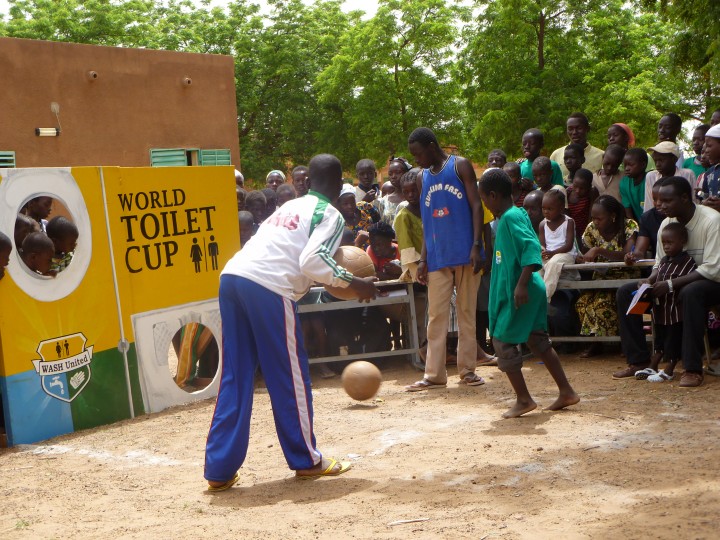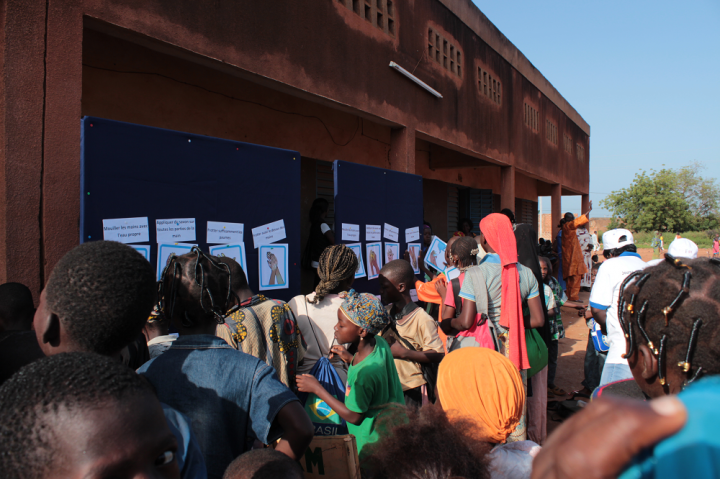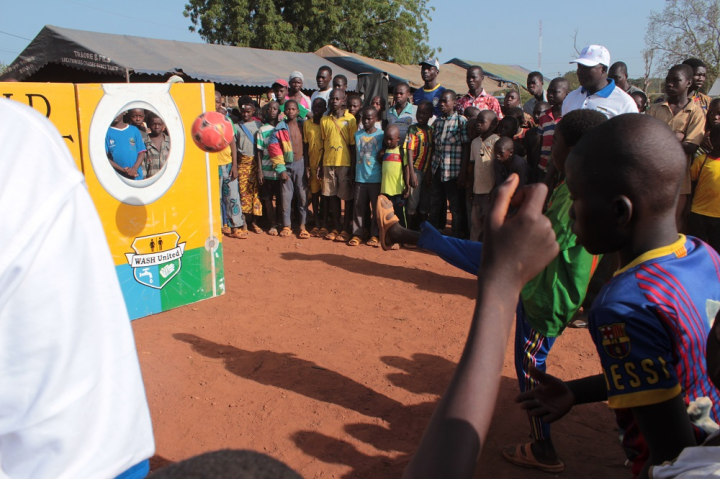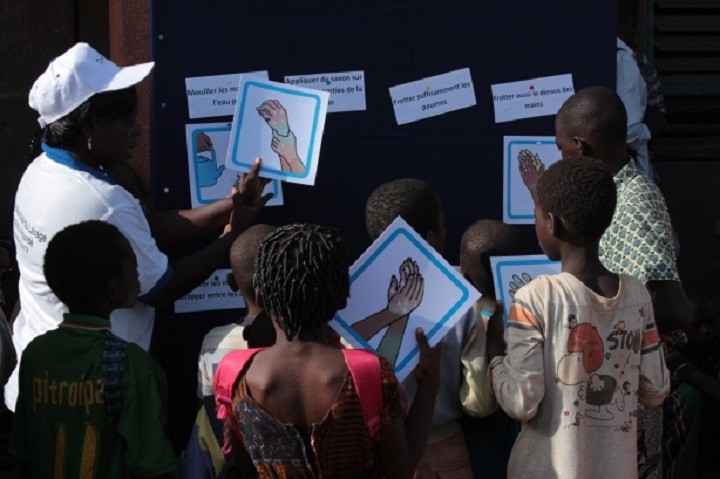Sanitation activities of GIZ in Burkina Faso Drinking Water and Sanitation Programme in Boucle du Mohoun, Hauts-Bassins and Sud-Ouest
2016 - 2018 • Deutsche Gesellschaft für Internationale Zusammenarbeit (GIZ) GmbH
Purpose
To improve the delivery of water and sanitation services through key actors in the water and sanitation the sector
Activities
For strengthening the key actor’s capacities in improving water and sanitation services provision, a great support is delivered to national partners at macro-, meso- and micro-level. The programme therefore supports mainly the development and the implementation of water and sanitation national policy and strategy as well as the 3 of the 5 national programmes of the sector (Governance, Water Supply and Sanitation and Waste water and excreta) , which take into account the SDGs.
This support consists of the implementation of four (4) components:
(1) Water and sanitation sector governance at macro-level. This strengthens the sector steering and dialogue by promoting consultation frameworks, supporting the design and implementation of an integrated monitoring and evaluation system of the 3 national programmes (Governance, Drinking water supply and Sanitation) ensuring data reliability, strengthening financial transparency through a system of accountability on the use of funds transferred by the Ministry to the municipalities for water supply and sanitation investments in the framework of decentralization and stimulating and supporting multi-stakeholders dialogue.
(2) Drinking water supply services and sanitation management in urban and peri-urban areas at meso-level by supporting the National Office for Water and Sanitation (ONEA) in optimizing and controlling its operation costs through the reduction of water losses, the optimization of energy and water treatment processes and the operational management; the promotion of drinking water supply in peri-urban informal settlements based on human rights approach; the improvement of the monitoring of water services delegates performance, who are in charge of drinking water supply in peri-urban informal settlements; the establishment of a decision-making computer system co-piloted by ONEA’s IT and Management Control departments; supporting ONEA training centre for water and sanitation professions (CEMEAU) for a scaling-up of training provided to water and sanitation professionals and a setting-up of a sustainable training financing mechanism;
(3) Promote sanitation services in urban and peri-urban areas by strengthening municipalities capacities in the mobilization of financial resources for the sanitation infrastructures constructions; in promoting hygiene and sanitation at the local level; in setting-up hygiene and sanitation rules and strategy taking into account sanitation chain and by supporting ONEA to improve its collective sanitation network management especially pre-treatments of industrial wastewater and final support DGA in defining a national sanitation management strategy and to end open defecation.
(4) Strengthen communal capacities to take on their responsibility of developing drinking water and sanitation services in the framework of decentralization. This support concerns the municipality structuring and functioning and local decision-making bodies, to develop strategic, operational planning and fund-raising, to assure the management and maintenance plans of boreholes equipped with hand pumps, install local monitoring of water services ‘quality based on digitized data collection, strengthen municipalities accountability on water and sanitation services to users and bring support to water and sanitation decentralized authorities of the ministry at regional level to counsel municipalities.
Images
Countries of activity
Location of main activity
Objectives
Access to drinking water and adequate sanitation services is a major challenge for Burkina Faso. Water- borne diseases remain one of the first causes of under-five mortality. In 2017, the percentage of access to drinking water and sanitation were respectively 73.4 percent and 21.6 percent. However, these encouraging figures hide great regional inequalities and the disparities vary according to the area (rural or urban).
For more than ten years, Burkina Faso government undertook major sectoral reforms to facilitate populations’ access to drinking water and sanitation services. The two main challenges are to ensure regularity and reliability of water services to users by ensuring continuous maintenance of infrastructures and to boost sanitation access coverage that remains very low. Another challenge that arises these past ten years is providing an access of water and sanitation to rapid expanding of poor populations living in peripheral areas.
The main objective of the programme is to improve the delivery of water and sanitation services through key actors in the water and sanitation the sector.
Further information
Line ministry: The Programme is under the technical supervision of Ministry of Water and Sanitation (MEA)
Intervention zones (8 municipalities) : Dédougou, Toma, Solenzo, Houndé, Bobo-Dioulasso, Orodara, Diébougou, Dano
Main Partners: Ministry of Water and sanitation and its technical departments (General Secretariat (SG), General Directorate of Studies and sectorial statistics (DGESS), General Directorate of Sanitation (DGA) , Directorate General of drinking Water (DGEP), General Directorate for Water Resources (DGRE), National Office for Drinking Water Supply and Sanitation (ONEA), Regional Directions for water and sanitation), NGOs, local associations, private sector, as well as eight municipalities mentioned above in three regions of Burkina Faso.
Form of implementation: Technical assistance - funding agreement - local grants
Contact information
Wilhelm Kohlmus
Login to see the e-mail-adress of the contact person.
Filter tags
Behaviour change Capacity development German government Political processes and institutional aspects Rural areas Sub-Saharan Africa
Links
Deutsche Gesellschaft für Internationale Zusammenarbeit (GIZ) GmbH
Eschborn
Germany
Uploaded by:
SuSanA secretariat




















